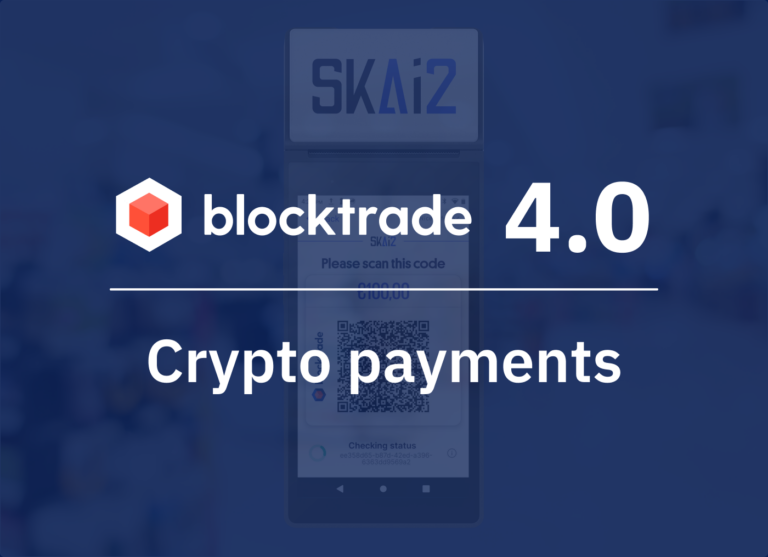Crypto scams are on the rise. There is evidence to suggest that crypto scams are becoming more prevalent, likely due to the growing popularity and adoption of cryptocurrency. According to the Federal Trade Commission’s Data Spotlight from June 2022, reports show that scammers are taking advantage of the crypto craze, and losses due to crypto scams have increased sharply.
To protect oneself from these scams, it is important to exercise caution and stay aware of the common tactics used by scammers. Educating oneself about the technology and staying vigilant can go a long way in preventing falling victim to a crypto scam. The FTC also recommends being cautious when investing in cryptocurrency and avoiding offers that seem too good to be true.
Why crypto is so popular with scammers
Cryptocurrency scams make up the largest part of financial scams on the internet. This is a sad fact revealed by a 2021 report by the US Federal Trade Commission (FTC). Worldwide, blockchain analytics firm Chainalysis estimates that crypto scammers made over 14 billion US dollars in 2021 alone (7.8bn in crypto scams, 6+bn in hacks). Another report from this source also outlines several potential scenarios in which crypto crime could evolve, including the increased use of privacy-focused cryptocurrencies and decentralized exchanges, and the potential emergence of new types of scams and frauds. The report also suggests that as the cryptocurrency ecosystem becomes more regulated, criminals may shift their focus to regions with weaker regulations and law enforcement.
Why are crypto scams so popular with fraudsters around the world? It comes down to the characteristics of blockchain: decentralization, immutability, and pseudonymity.
• Decentralization ensures that there is no centralized entity that could stop or reverse a payment transaction to a scammer.
• Immutability ensures that all crypto transactions to scammers are irreversible and final, unlike payments between bank accounts.
• Pseudonymity of crypto wallets ensures that the real identity of a scammer is not revealed. With decentralized wallets, an owner’s identity is unknown; hence, neither the victim nor the police will be able to find out who the scammer was.
Plus, there are two more reasons: greed and the lucrative nature of crypto scams.
• Greed and impatience are rampant in the crypto space. In their desire to “get rich quick,” many users will not conduct due diligence, as they would normally do with any investment.
• The lucrative nature of scamming: When a scammer gains access to a user’s backup/seed phrase/private key, they can empty the entire wallet within a few seconds.”
The Most Common Crypto Scams Revealed
Having discussed the reasons for the popularity of crypto scams, let’s discuss how they usually work and how to stay safe from them. Broadly speaking, there are two types of crypto scams: the first one is accessing your crypto wallet, the second is receiving bogus payments.
Accessing your crypto wallet: Most commonly, crypto scammers will try to get you to reveal your private key or backup seed phrase. That way, they can access your wallet and steal all of your funds within seconds, hence making this a highly attractive scheme.
Receiving bogus payments from you: Similarly equal are schemes where scammers try to get you to make a transaction to their crypto wallet. In exchange, they make a promise of high return in some investment or a giveaway (e.g. “Send 1, get 5.”). Blockchain transactions are irreversible, hence once the money is gone, it is gone.
The 5 Most Common Crypto Scams Explained
While this list is not exhaustive, these are the five most common crypto scams and how they work:
Romance/Dating Scam:
On online dating websites and portals, scammers pretend to be a woman looking for romance and love. They will interact with a love interest long enough to earn their trust and learn about their financial resources and background. Meanwhile, they often pretend to have a finance/investment/trading background.
They may then switch the topic to a lucrative investment opportunity and refer their victim to a website where they should invest. This can either be a scam where account credentials should be shared or a transfer payment to be made.
Generally, never send money to any person you haven’t met in person. If your chat partner on a dating app moves the conversation towards cryptocurrencies and tries to give you tips or investment opportunities, run for the hills!
The Multiplier/Giveaway Scam:
“Send one BTC, receive five BTC back!” Sounds like a scam, doesn’t it!? Good, because it is! Surprisingly successful, giveaway scams are among the most popular crypto scams. Often impersonating a celebrity, thought leader, or crypto influencer, scammers share posts via fake social media profiles or place video ads on YouTube and other platforms. They will usually provide a reason like “to verify the wallet address” as a reason why users must pay first.
Needless to say, the money is gone, and there’s no giveaway. We shouldn’t have to say this, but any kind of multiplier giveaway scam is just that – a scam! Anyone who asks you to send something first so you will get more in exchange is trying to scam you.
Phishing Scams:
These scams work by sending phishing emails to a crypto user, asking them to log in and share details on a fake website that is supposed to resemble a crypto exchange or wallet provider that they are a member of. If users log in and enter their private key or backup seed phrase, the scammers will be able to obtain that data instantly.
Users must always check the correct URL in the URL bar of their browser. Scammers will often use an extremely similar URL in their attempt to deceive users and imitate a real website.
Remote Access Scam:
With this type of scam, scammers usually call a person, pretending to be from a reputable firm like Microsoft or crypto-exchanges like Blocktrade. They pretend there is an issue with the person’s account, and they would help them fix it. To this end, the scammer needs remote access to the person’s device (desktop, tablet, smartphone).
The victim is then instructed to download remote access software like TeamViewer or AnyDesk. They instruct the victim step by step until they can gain remote access to the PC. Once this is done, they can gain access to the funds in crypto wallets, potentially emptying them within seconds. Therefore, never allow any person you don’t know to get remote access to your PC, smartphone, or tablet.
The Recovery Scam:
In this scheme, scammers contact a previous victim of a crypto scam and promise to have a way to help them recover part or full amount of their previous loss. Before they can recover it, however, the user would have to transfer a “recovery service fee”.
Of course, this is a scam, a scheme to make even more money off of prior scam victims. Blockchain transactions are irreversible, and no recovery is possible. Scammers love to recontact victims as they have proven to fall prey to the scam. Anyone who promises you a recovery of funds lost through scams is lying and a scammer themselves.
How to Stay Safe
We have covered for each discussed scam how to recognize and prevent them. Generally, you can protect yourself from crypto scams if you abide by the following principles:
Never share your private keys or backup seed phrase with anyone: Whoever has access to your private key and or seed phrase can simply restore your crypto wallet and thereby access your crypto-funds and steal them from you.
Check the URL of every crypto-website you use. Always make sure when logging in at a crypto service or crypto exchange that you have typed in the exact URL of the official website. Check for typos or different domain ending.
Allow no one remote access to your device: There is practically no necessity at any time for someone to remote access your device, be it smartphone, tablet or desktop. If a stranger calls you and pretends to need remote access to your device, hang up and ideally report it to the police.
What sounds too good to be true always is. Unfortunately, the crypto world is full of false hopes to get rich quick. Anyone who offers you an amazing investment opportunity with insanely high ROI or even to return a multiple of your investment is a liar. Run for the hills!
To gain more information on the best crypto investing opportunities and staying safe by better decision making, check out:
Conclusion
Crypto scams pose a significant threat to the entire crypto industry, as they not only harm individuals but also damage the industry’s reputation as a whole. It’s disheartening to see hardworking crypto users lose their funds to these fraudulent schemes. However, there are steps you can take to protect yourself. By exercising caution and common sense, you can avoid falling victim to these scams.
Remember, if an offer seems too good to be true, it probably is! Be wary of promises of high returns or giveaways in exchange for your money. Don’t send money to strangers, and never share your private key or backup seed phrase with anyone.
Stay vigilant and cautious when navigating the crypto-sphere. Always double-check the URL of any crypto exchange or service you use to ensure it’s not a phishing website. With these precautions, you can reduce the risk of falling for a crypto scam and keep your funds safe.







